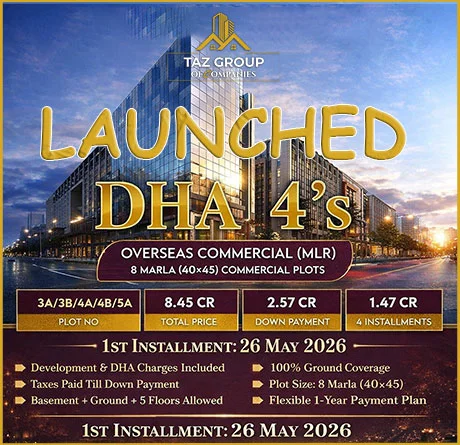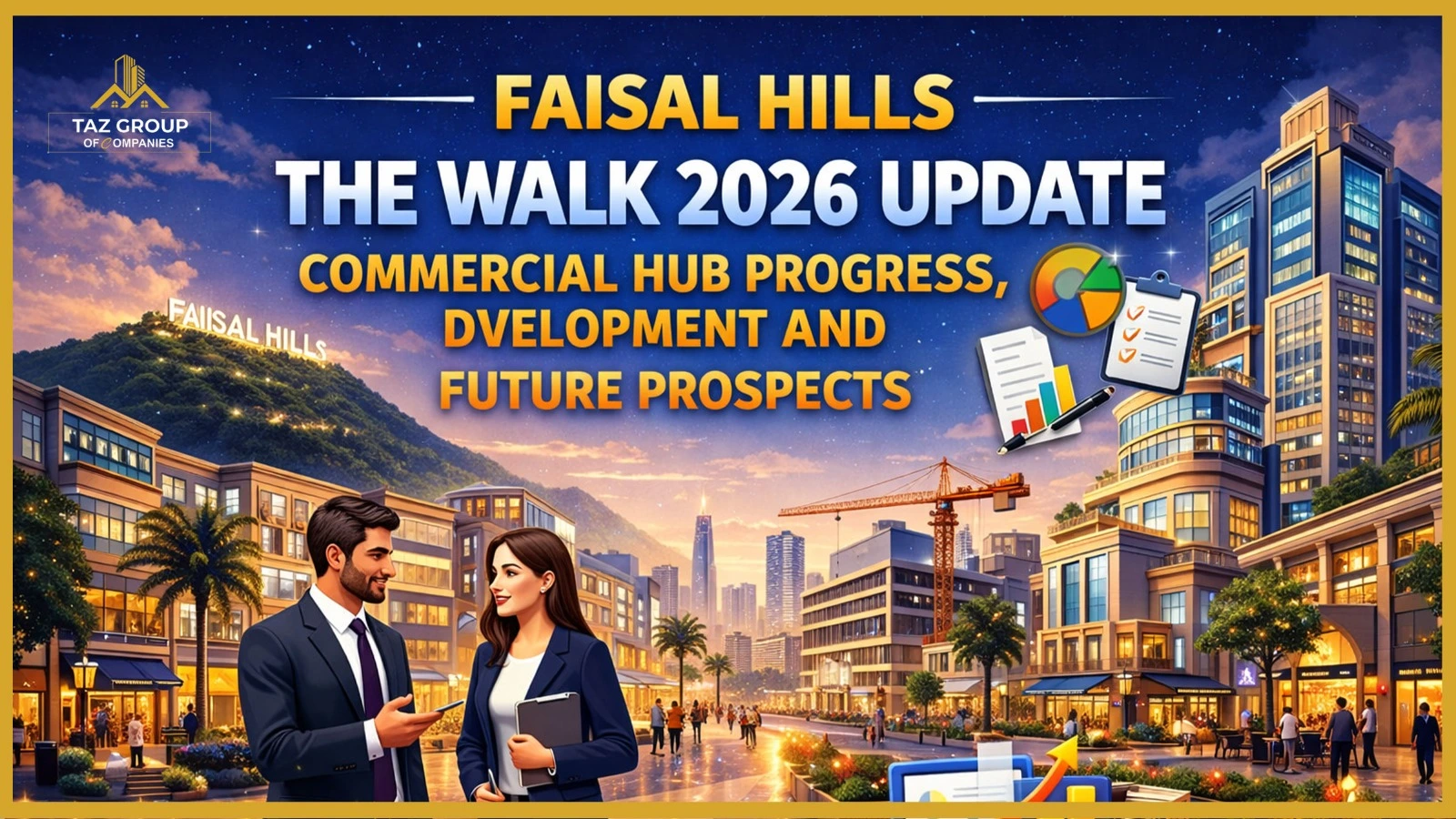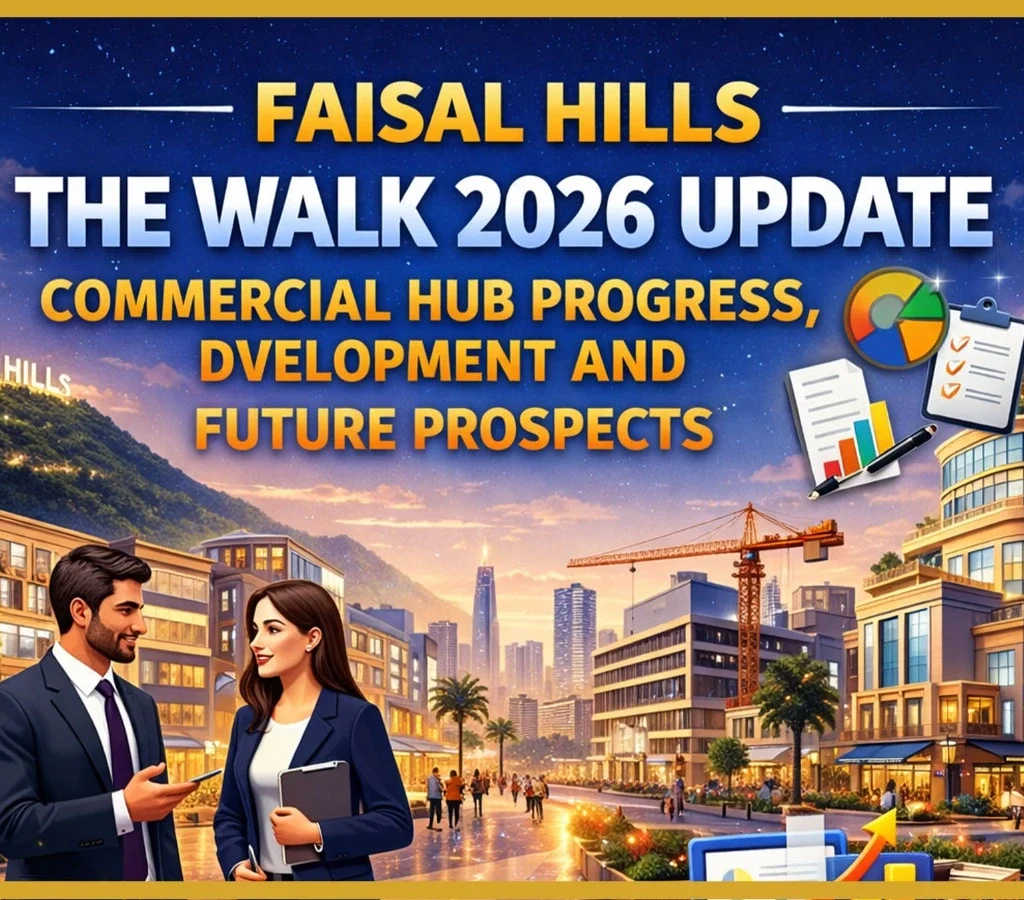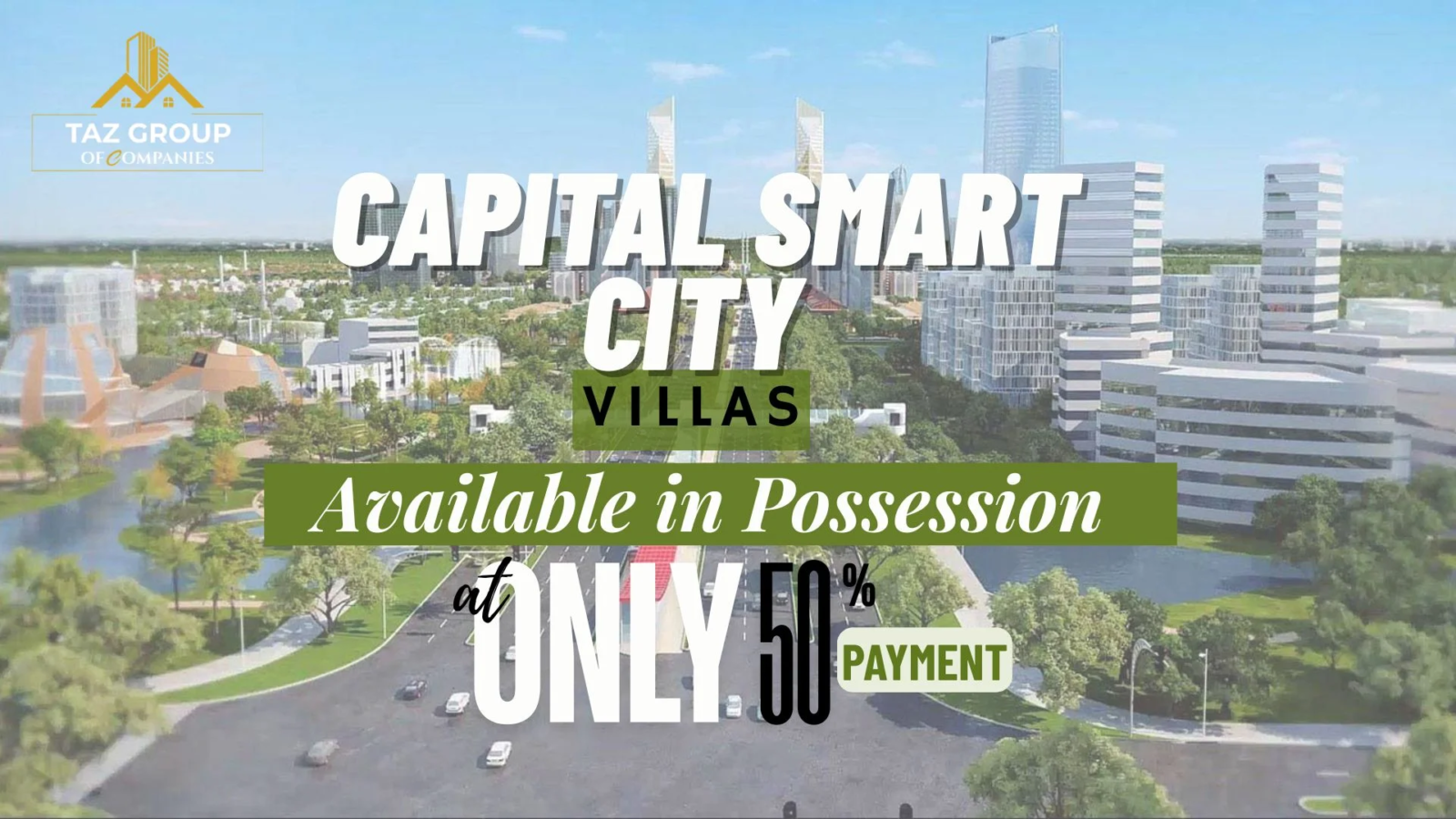If you are looking for a high-potential commercial investment in Islamabad, District One Commercial in Capital Smart City is the place to be. Strategically planned and developed to meet modern business needs, this commercial sector offers investors a unique combination of prime location, world-class infrastructure, and long-term profitability. At TAZ Group, we guide you to secure the best plots while ensuring your investment grows steadily.
Prime Location – At the Heart of Islamabad’s Smart City
Location is everything in real estate, and District One Commercial does not disappoint. Situated within Capital Smart City Islamabad, the sector enjoys excellent connectivity to the city’s main arteries. Whether you are targeting retail businesses, corporate offices, or restaurants, accessibility and visibility are key to attracting customers and maximizing returns.
Wide Roads and Easy Access: The commercial roads are designed to handle high traffic while maintaining a smooth flow for visitors and customers.
Proximity to Lifestyle Amenities: Being part of a smart city, the sector is near entertainment hubs, recreational areas, and residential communities, ensuring a steady stream of potential clients.
Future Growth Potential: The surrounding areas are developing rapidly, promising significant appreciation in property value over the coming years.
Flexible Plot Options – Designed for Every Investor
District One Commercial offers a range of plot sizes, catering to different business models and investment capacities. Whether you want a smaller 4 Marla plot for a boutique business or an 8 Marla plot for a larger corporate setup, there is a perfect option for everyone.
Capital Smart City District One Commercial Payment Plan:
| Plot Size | Total Price (PKR) | Down Payment (20%) | Quarterly Installments (PKR) |
|---|---|---|---|
| 4 Marla | 22,000,000 | 4,400,000 | 2,200,000 |
| 8 Marla | 37,500,000 | 7,500,000 | 3,750,000 |
Special Discounts:
10% rebate on full lump-sum payments
5% rebate for 50% down payment
Note: Development charges and taxes are additional.
This flexible payment structure ensures that both first-time investors and seasoned businessmen can participate without financial strain.
Modern Infrastructure – Supporting Business Success
The infrastructure of District One Commercial is built with modern commercial standards in mind, providing a safe, efficient, and convenient environment for businesses.
Wide Commercial Roads: Designed for smooth traffic flow and easy customer access.
Organized Layout: Zoning and plot distribution ensures a professional business environment.
Dedicated Parking Spaces: Adequate parking ensures your customers have a hassle-free experience.
Smart Utilities: Reliable electricity, water, and communication facilities support uninterrupted business operations.
This means that investors are not only buying a plot but also investing in a fully functional commercial ecosystem that is ready for immediate business activity.
Lifestyle Integration – More Than Just a Commercial Hub
One of the standout features of District One Commercial is its integration with the residential and recreational areas of Capital Smart City. Unlike traditional commercial zones, this sector is part of a smart city ecosystem where residential communities, entertainment hubs, and lifestyle amenities coexist.
Nearby Residential Communities: This ensures a constant customer base for retail businesses, cafes, and restaurants.
Entertainment and Recreational Hubs: Parks, sports complexes, and lakes nearby make it a high-footfall area.
Lifestyle-Oriented Planning: The sector is designed to offer convenience, comfort, and aesthetic appeal, attracting both businesses and customers.
This integration makes District One Commercial an investment that not only offers financial returns but also enhances lifestyle and community engagement.
Why Invest in District One Commercial?
Investing in District One Commercial is more than buying a commercial plot; it’s a strategic move for long-term growth. Here’s why this sector stands out:
Prime Location: Situated within Capital Smart City, it offers unmatched accessibility and connectivity.
High Investment Potential: The smart city’s growth ensures continuous appreciation of property value.
Modern Infrastructure: Roads, parking, utilities, and layout are designed for business success.
Flexible Investment Plans: Payment plans and plot options are tailored for a wide range of investors.
Trusted Developers: Backed by Future Development Holdings (FDH) and Habib Rafiq (Pvt.) Ltd., both renowned in Pakistan’s real estate sector.
Developer Authenticity – A Trusted Investment
The credibility of a project is crucial in real estate investment. Capital Smart City Islamabad is developed by Future Development Holdings (FDH) in collaboration with Habib Rafiq (Pvt.) Ltd., two highly respected names in Pakistan’s property market.
FDH: Known for smart city planning and innovative real estate solutions.
Habib Rafiq Pvt. Ltd.: A trusted name with decades of experience in delivering large-scale projects.
Investing here means your investment is secure, transparent, and managed by professionals with a proven track record.
Long-Term Growth & Profitability
District One Commercial is not just a short-term investment; it is built for long-term financial success. With rising demand for commercial spaces in Islamabad, particularly in smart cities, plot prices are expected to appreciate steadily over the years. Businesses located here will benefit from high footfall, brand visibility, and premium positioning, ensuring profitable operations and sustainable growth.
How TAZ Group Can Help You
At TAZ Group, we specialize in guiding investors to make informed and profitable decisions. Our services include:
- Helping you select the best plot based on size, location, and budget
- Offering detailed guidance on payment plans, documentation, and investment process
- Providing insights into market trends to ensure maximum ROI
- Facilitating secure transactions with complete transparency
With our expertise, investing in District One Commercial becomes simple, safe, and rewarding.
Conclusion
District One Commercial in Capital Smart City Islamabad is the perfect blend of strategic location, modern infrastructure, and high investment potential. Whether you are looking to establish a business, invest for long-term returns, or expand your real estate portfolio, this commercial sector offers everything you need.
With flexible payment plans, trusted developers, and a lifestyle-integrated smart city, it is more than just a commercial hub—it is a gateway to financial growth and business success.
Secure your plot today with TAZ Group and become part of Islamabad’s most promising commercial destination!













